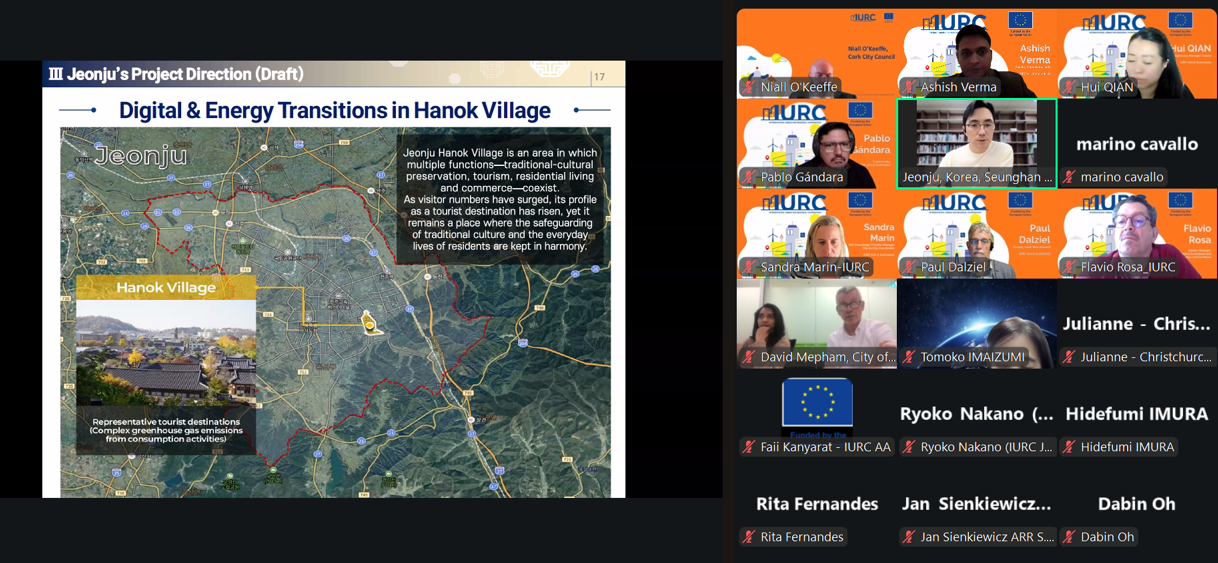The International Urban and Regional Cooperation (IURC) Asia & Australasia Programme convened its deep dive session 1 on Urban Innovation, bringing together thought leaders and city representatives from Christchurch (New Zealand), Bologna (Italy), Cork (Ireland), and Jeonju (Korea) to spotlight how diverse urban ecosystems are advancing innovation for sustainable growth.
Against the backdrop of IURC Phase II, the session provided a dynamic platform for exchanging strategies that bridge resilience, climate neutrality, digital transformation, cultural heritage, and economic vitality. From earthquake recovery models and smart technology integration to circular economy practices, international university–industry collaborations, and heritage-based carbon neutrality projects, the participating cities illustrated both their challenges and pioneering solutions—laying the groundwork for deeper collaboration and collective action to be further explored at the upcoming IURC meetings in Barcelona at the Smart Cities Expo World Congress.
Christchurch
Julianne Hughey, the City Initiatives Lead from Christchurch, showcased the city’s strengths in food, agritech, aerospace, and its role as an Antarctic gateway city. The city shared lessons from its earthquake recovery, introduced the SmartView app and environmental monitoring systems, and emphasized resilience and community engagement.
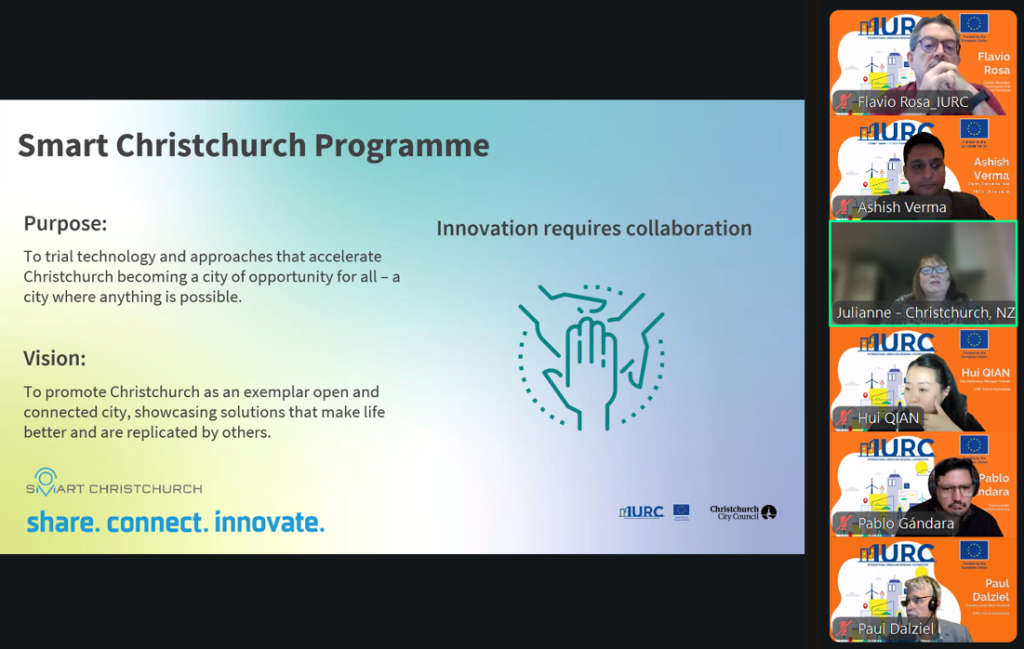
Bologna
Marino Cavallo, Head of Research, Innovation and EU and International Projects of the Bologna Metro, presented its work with 10 municipalities on sustainability, circular economy, and green infrastructure. Examples include urban regeneration parks, repair and reuse networks, ecodesign training, and renewable energy projects such as agrivoltaics. The city seeks insights on financing, advancing climate neutrality, and developing collaborative projects.
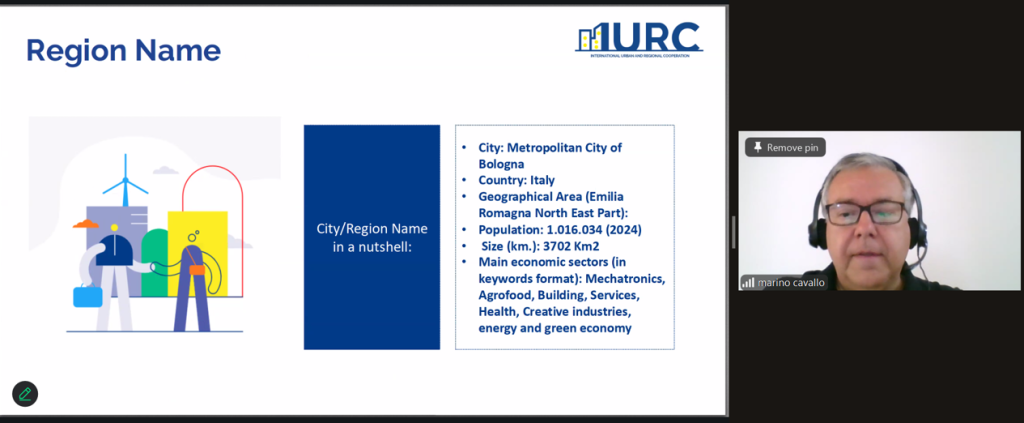
Cork
Dr. Niall O’Keeffe, Head of Enterprise from Cork City, highlighted the city’s growing innovation ecosystem, driven by green and digital initiatives and strengthened by SME support, university–industry collaboration, and links between culture and enterprise. Facing population growth challenges, Cork looks to European peers for lessons on governance, funding, and internationalization to embed innovation across sectors and build a globally connected innovation city.
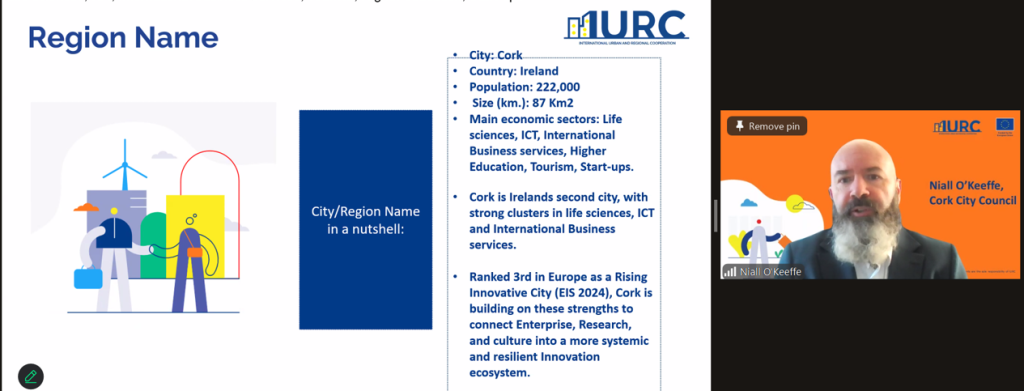
Jeonju
Seunghan Lee, Head of Jeonju Carbon Neutrality Support Centre, emphasized heritage preservation and climate action, focusing on the Hanok Village. While challenged by an aging population and limited industry, the city remains a leading cultural tourism hub. It is piloting digital and energy transitions in the Hanok Village to enhance efficiency while preserving tradition, and seeks inspiration on balancing heritage with carbon neutrality.
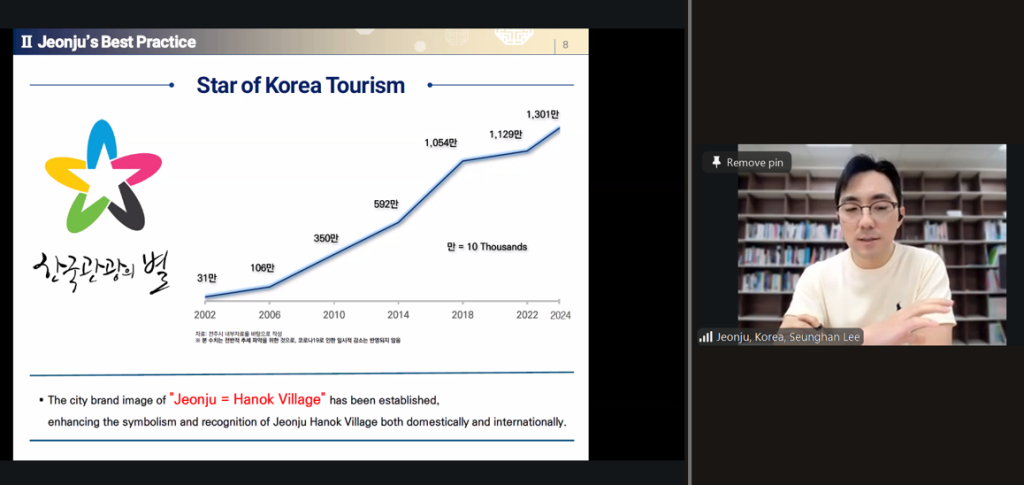
In the closing session, both Bologna Metro and Christchurch shared their past cooperation experiences as the graduate cities of the previous IURC Programme. Together, we look forward to a deeper discussion in Barcelona and the outcome of the IURC Phase II Programme.
For more information, please contact Ms. Hui Qian, City Diplomacy Manager for Taiwan: hqian@iurc.eu
